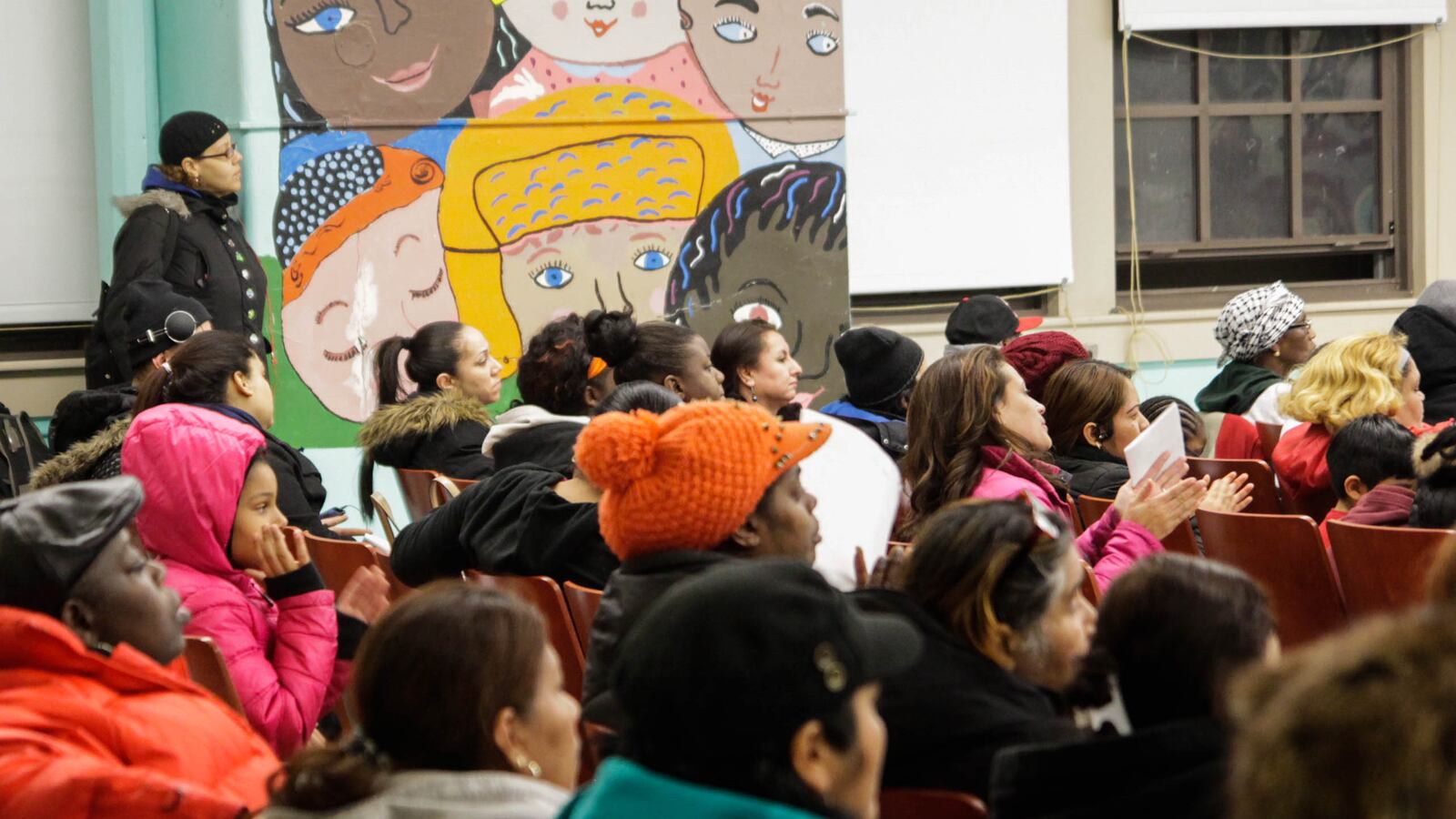The funding gap between traditional New York City schools and co-located charter schools has closed, according to a new report from the Independent Budget Office.
The report shows that charter schools that operate in city-owned school buildings took in $29 less in public funding per student than district schools did during the 2014-15 school year — less than the cost of a seven-day unlimited MetroCard. The gap is much wider for charter schools that pay for private space, which received $2,914 less per student than district schools.
The numbers are the first comparisons of district and charter-school funding since 2011, when the IBO’s calculations found that co-located charter schools received nearly $650 more per student.
Comparisons between district and charter-school funding have been a topic of interest since the Bloomberg administration began allowing schools to open inside of city buildings, a policy that helped the city’s charter sector expand rapidly. Advocates have long argued that the policy simply leveled the playing field for schools looking to open within the city’s expensive real estate market, since the state did not provide the schools with extra money for facilities.
Opponents said those policies gave charter schools an unfair boost, especially because they are freer to raise outside funds than district schools. More than 60 percent of the city’s charter schools now operate in public space, and do not have to budget for utilities and security costs for district buildings.
The IBO’s new report shows that gap has closed for co-located schools as district spending increased. A new contract with the city teachers union raised salaries, and pension costs have increased for teachers in traditional schools. Meanwhile, the state has increased funding for charter schools in annual increments rather than using a funding formula designed to keep pace with increasing district-school costs.
Overall, traditional district schools had $17,928 to spend per general-education student last year, while co-located charter schools had $17,899 and charter schools in private space had $15,014.
For schools in private space, the funding gap has grown since the 2011 estimates. But that is likely to close for some schools, since a new state law requires the city to provide $2,775 per student for new or expanding charter schools if the city does not offer the school free space. The city plans to spend more than $30 million in two years on those payments.
“We are encouraged that over the last two years we have increased funding for all our schools, while almost eliminating the disparities between them,” Department of Education spokeswoman Devora Kaye said in a statement.
Schools in private space that have already reached their full size will not qualify for additional funds, though, and growing schools will only receive that funding for students in the new grades. That will maintain a disparity that charter advocates called unacceptable on Thursday.
“This report underlines the urgent need to take steps to correct and improve funding for charter schools and the students they serve so that the gap is not just narrowed but erased for once and for all,” New York City Charter School Center CEO James Merriman said.
The report does not examine other sources of funding for charter schools. A spokeswoman for the city teachers union called private donations “the elephant in the room.”
Charter schools’ access to public space coupled with their private fundraising earned the ire of Bill de Blasio as a candidate for mayor in 2013, who said he would charge rent to charter schools that were more effective at raising outside funding, specifically calling out Success Academy CEO Eva Moskowitz. Parents also sued to require charter schools to pay rent for public space in 2011.
The debate has receded somewhat in the last year. De Blasio’s remarks prompted the state law that requires the city to guarantee space or funding for new and growing charter schools, and the city has continued to propose co-locations for charter schools.
But the report could play a role in a legal dispute that is making its way through the courts in Buffalo. Charter-school parents from Buffalo, Rochester and New York City filed a lawsuit challenging the funding allocated to their schools, which operate in private space.

